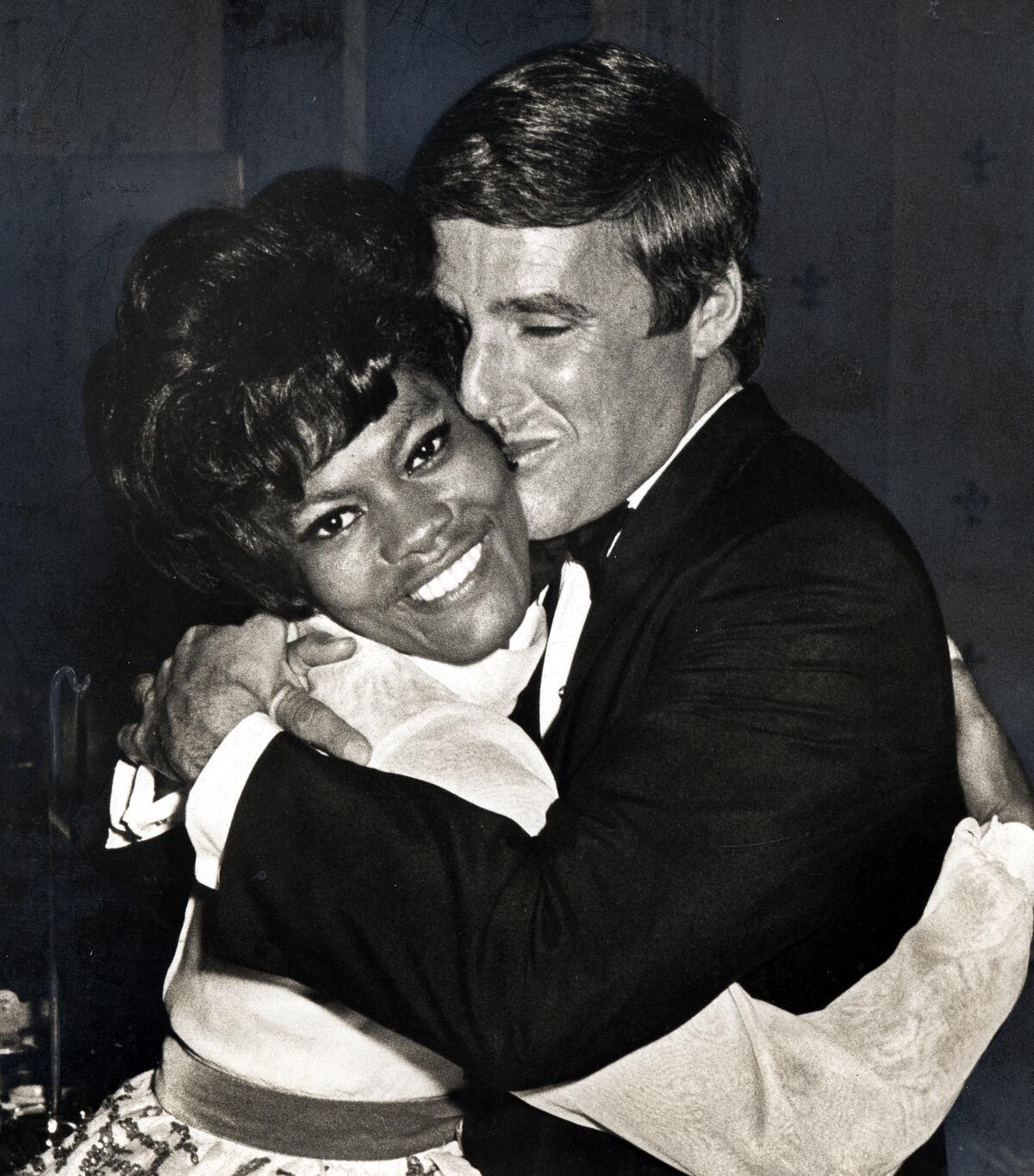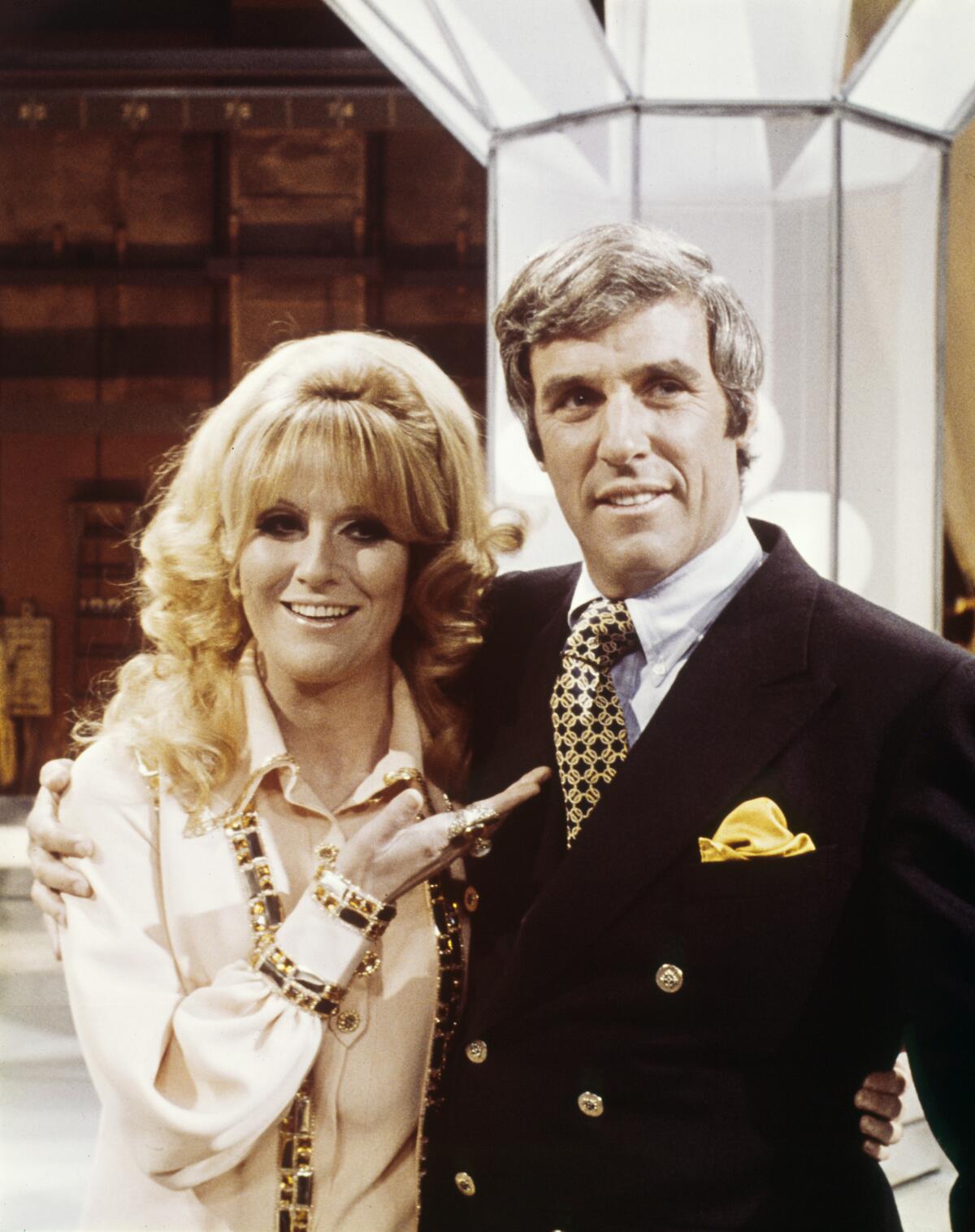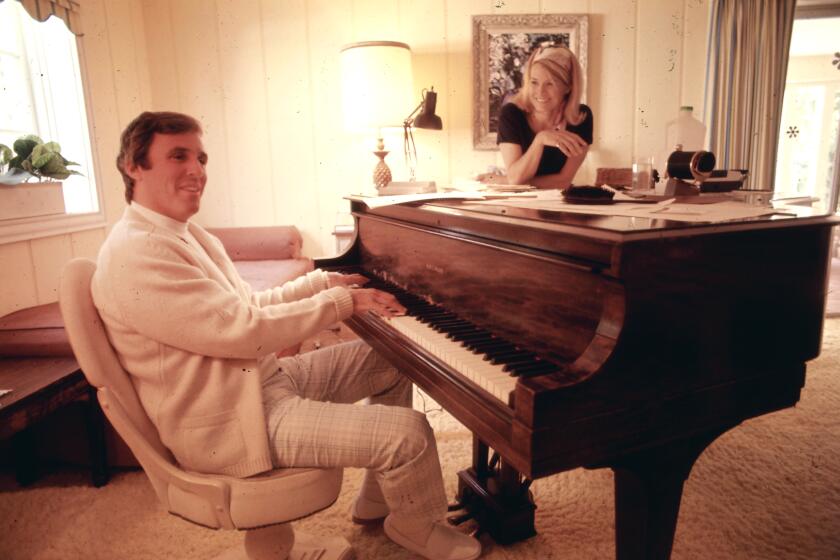Diane Warren remembers Burt Bacharach: ‘Every songwriter idolized him’

Diane Warren is the prolific songwriter behind such pop smashes as Celine Dion’s “Because You Loved Me,” Aerosmith’s “I Don’t Want to Miss a Thing,” LeAnn Rimes’ “How Do I Live” and Cher’s “If I Could Turn Back Time.” A member of the Songwriters Hall of Fame, she’s been nominated for 15 Grammy Awards and 14 Oscars — including a nod for original song at next month’s 95th Academy Awards with “Applause,” from “Tell It Like a Woman” — and been named ASCAP’s songwriter of the year six times. Here, she remembers the life and work of her fellow songwriter Burt Bacharach, who died Wednesday at age 94.
Burt Bacharach created something that didn’t exist before him — a musical language that was all his own. It starts with those melodies, which were unlike anything else you’d ever heard, with the unusual time signatures and the unique harmonic choices.
I can remember when I was little, from my earliest memory, those songs just seeped into my life: “Close to You.” “Raindrops Keep Fallin’ on My Head.” “This Guy’s in Love With You.”
“Alfie” is maybe my favorite of all time. There’s nothing that’s ever been written by anyone in the history of people writing songs that’s as good as that. And let’s give Hal David credit: the marriage of those genius melodies with David’s lyrical genius? Unmatched.
Think about some of the lines in “Alfie.” “And if only fools are kind, Alfie / Then I guess it is wise to be cruel.” How cool is that? “And if life belongs only to the strong, Alfie / What will you lend on an old golden rule?” It’s so simple but so profound.

This is a really important thing: Bacharach’s music was super-complex, but you could sing along to it. Take “I Say a Little Prayer.” You’re not thinking, Wow, this has a 5/4 bar. You’re thinking, This just feels right. It was just natural, meant to be. He took something sophisticated and made it so simple that anybody could sing along to it. That’s not easy.
The chord changes, where he went melodically, it was never where you expected it to go but always where you wanted it go. And when it did, it was like, Oh, this couldn’t have gone anywhere else. But only someone like Bacharach could take you there.
Another favorite of mine is “Walk on By.” That song really influenced me because I’ve written a lot of songs about that thing where you don’t want to show your feelings. Is it happy? Is it sad? “Walk on By” is the perfect version of that. And, I mean, Dionne Warwick’s vocal — just brilliant. Or Dusty Springfield on “The Look of Love”? It’s pop perfection. All these songs were.

And they created careers. Look at Dionne. Look at Herb Alpert, who wasn’t really known as a singer before “This Guy’s in Love With You.”
These are the songs I grew up with. I grew up in L.A., in the Valley, when Top 40 radio really was Top 40. They played everything, and so many of these songs were big hits. I constantly heard them on the radio. But also: Remember that movie “The Blob”? I just found out a few years ago that Burt Bacharach wrote the theme to “The Blob.” And it sounds totally Burt Bacharach-y when you listen to it.
From swinging ’60s sophistication to proto-yacht-rock to adult-contemporary elegance, the Bacharach songbook is sui generis in the annals of popular music.
The other thing is, these songs had great concepts. “I Say a Little Prayer.” “One Less Bell to Answer” — what a great way of saying, I’m really happy that I don’t have this guy in my life, but oh wait, that’s kind of a bummer too. Or “A House Is Not a Home.” Think about how genius that is. No one ever looked at it that way.
The trick to writing a great song is looking at if from an angle that no one’s looked at it before. And Bacharach and David, they did that all the time.

I didn’t know Burt well. But in 1987 I wrote a song with him and Carole Bayer Sager, with whom he also wrote some classic, brilliant songs. The song we wrote together was called “Heartbreak of Love,” which Dionne Warwick did with June Pointer. I remember I was so nervous because I was gonna be in the room with one of my idols. I went up to his place three or four times. He was very methodical: “Let’s go to this part again.” I have no attention span, so I remember that being hard for me. But he was a super-nice guy — seemed really cool and humble.
I loved when he sang his songs. Obviously, someone like Dionne or Luther Vandross would’ve sung them better. But there was something beautiful and authentic about hearing him do his songs. It captured something that couldn’t be captured by someone who didn’t write them.
The sign of a great song is that it can be interpreted many different ways. Think about “Say a Little Prayer.” Dionne does the pop version, then Aretha does the soul version. Or “Always Something There to Remind Me.” Dionne has a hit with it, and then Naked Eyes, which was a great record too.
You can take a song and do it all kinds of different ways, in all kinds of different styles — but you can only do that if the song is great. And with Bacharach, the songs were always great.
He was on his own mountain. Everybody who’s a songwriter or a composer or an arranger idolized him. And there’ll never be another like him.
But the music doesn’t die. That’s the beauty of the songs. They’ll always sound fresh; they’ll always be relevant.
As long as there are voices to sing, they’ll be singing his songs.
As told to Times pop music critic Mikael Wood.
More to Read
The biggest entertainment stories
Get our big stories about Hollywood, film, television, music, arts, culture and more right in your inbox as soon as they publish.
You may occasionally receive promotional content from the Los Angeles Times.











